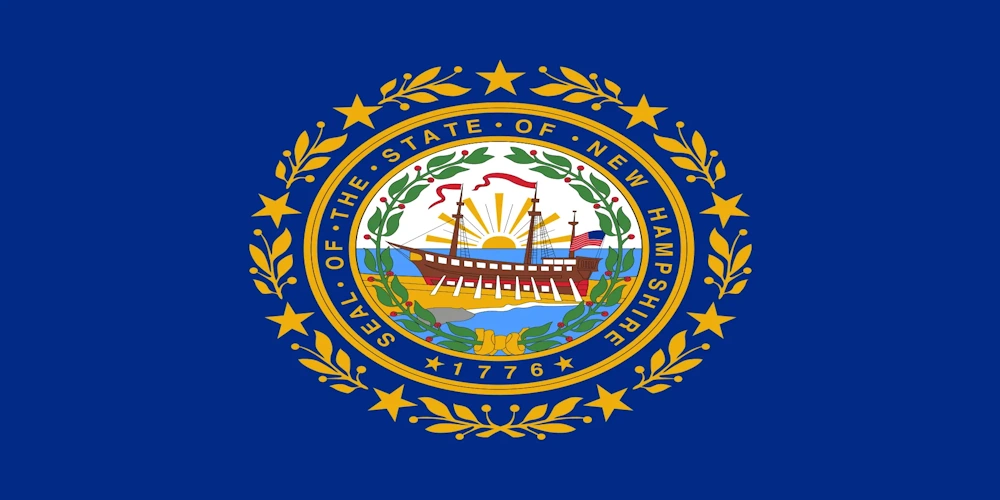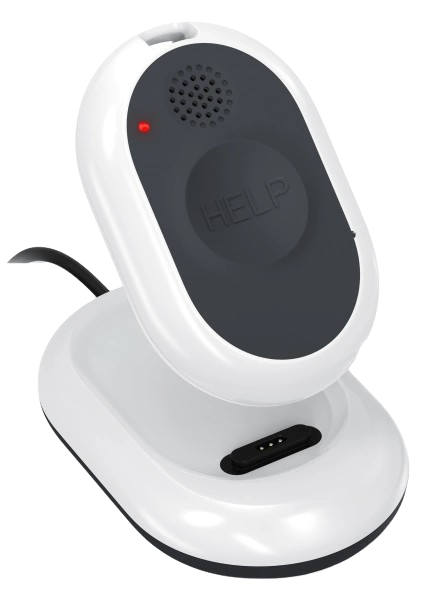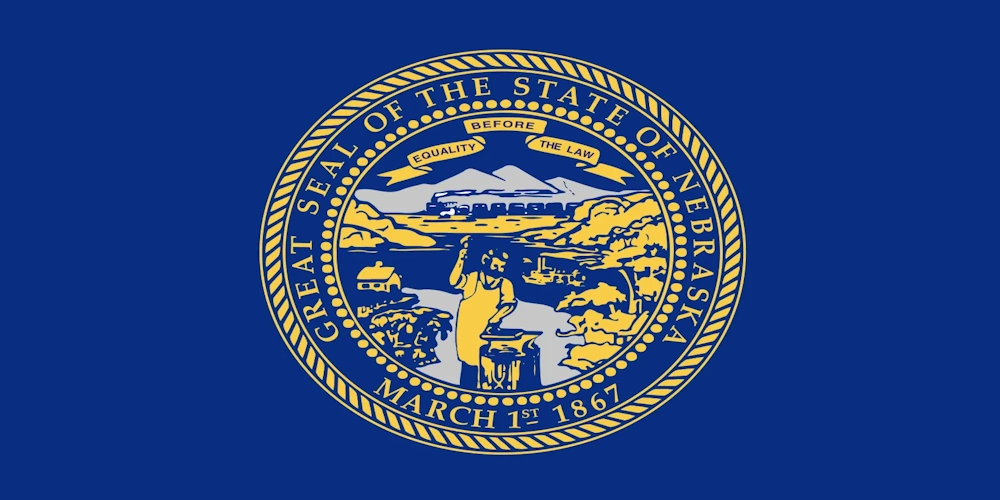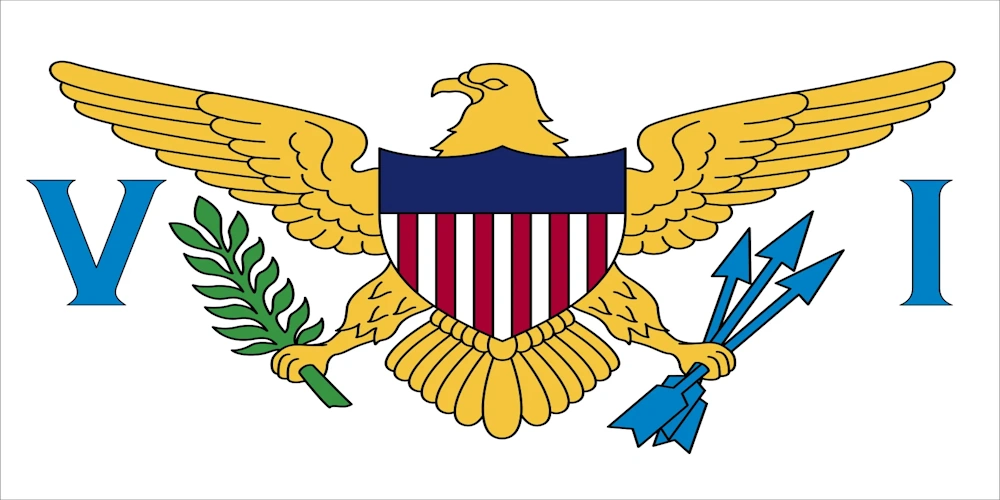New Hampshire’s economy spans healthcare, manufacturing, forestry, and utilities—industries where lone workers are often essential. From home health aides to remote utility technicians, many workers in the Granite State perform their duties in isolation, often without immediate supervision. This creates unique safety challenges that require careful planning and dedicated safety measures.
New Hampshire does not operate its own OSHA-approved state plan. As a result, federal OSHA (Occupational Safety and Health Administration) has sole jurisdiction over occupational safety and health enforcement in private-sector workplaces. Public-sector workers in New Hampshire are not covered by OSHA regulations, placing a greater responsibility on state agencies and employers to voluntarily promote safety.
On This Page
Our Guide To Lone Worker Safety Policy And Legislation In New Hampshire
Since federal OSHA governs occupational safety in New Hampshire, employers must comply with federal standards, including the General Duty Clause, which mandates that workplaces be free of recognized hazards that may cause injury or death. Although there is no regulation specifically for lone workers, OSHA expects employers to address the unique risks posed by working alone.
New Hampshire’s Department of Labor (NH DOL) oversees various aspects of worker protection, including wage laws, youth labor, and whistleblower protections, but it does not enforce OSHA safety standards. Still, the department provides guidance and may collaborate with federal agencies or local employers to encourage workplace safety awareness.
How New Hampshire Defines A Lone Worker
New Hampshire law does not offer an official definition of a lone worker, nor does federal OSHA. However, the concept generally applies to employees who work without direct supervision and may not be able to call for help or receive assistance immediately in the event of an emergency.
Typical lone worker roles in New Hampshire include:
- In-home healthcare professionals
- Forestry and logging workers
- Delivery drivers and couriers
- Security guards on overnight shifts
- Maintenance staff at off-hours or in remote buildings
- Utility field workers and inspectors
Employers are responsible for identifying these roles and implementing proper safety precautions to reduce the risks associated with working alone.
Employing A Lone Worker In New Hampshire
To protect lone workers in New Hampshire, employers should adopt a comprehensive risk management approach tailored to the specific hazards of isolated work. This includes both physical safety and mental well-being, particularly in remote or high-stress environments.
Key safety strategies include:
- Hazard Identification: Conduct regular risk assessments for tasks involving lone work.
- Emergency Procedures: Develop and train workers on response plans tailored to isolated environments.
- Communication Tools: Equip workers with devices that offer real-time monitoring and two-way communication.
- Scheduled Check-ins: Establish routine check-in protocols to ensure workers remain safe and responsive.
- Use of Technology: Leverage tools like the Safe Lone Worker app to automate alerts, provide GPS tracking, and manage safety logs.
These measures are consistent with OSHA’s expectations under the General Duty Clause and help ensure a safer working environment for all employees.
Learn How You Can Protect Your Employees With Loneworker.com

With Loneworker.com you can be equipped with the knowledge and the means to protect your employees and protect your business. Contact us today to learn more about how Loneworker.com can protect you and your employees.
How The Safe Lone Worker App Can Protect New Hampshire Lone Workers And Employers
The Safe Lone Worker app offers an efficient, tech-forward solution for employers in New Hampshire who need to monitor and protect employees working in isolation. With features like automatic check-ins, fall detection, GPS location tracking, and panic alerts, the app allows supervisors to maintain real-time awareness of worker status and location.
Employers in industries such as home healthcare, facilities management, and field services can use the app to improve compliance with federal safety expectations while reducing response time in emergencies and strengthening peace of mind for employees.
New Hampshire Lone Worker Policies
Because New Hampshire does not administer its own OSHA plan, all private-sector employers must follow federal OSHA standards for workplace safety. While there is no specific regulation for lone workers, employers are still obligated under the General Duty Clause to protect employees from foreseeable risks—including those posed by working alone.
This article is intended as general guidance and should not be considered a replacement for official regulatory advice or legal consultation.
New Hampshire Lone Worker Resources
OHS Contact Centre
- 1-866-415-8690
CDC / NIOSH
- 800-232-4636

Affordable Monitoring For Lone Workers In New Hampshire

-
 Monitoring Your Employees' Safety
Monitoring Your Employees' Safety
-
 GPS Tracking And Monitoring
GPS Tracking And Monitoring
-
 Man Down Panic Alerts
Man Down Panic Alerts
-
 24/7 Protection Anywhere
24/7 Protection Anywhere
Lone Worker Legislation
Lone Worker Safety Policies And Legislation By State
-
 Alabama State Safety Policies And Legislation
Alabama State Safety Policies And Legislation
-
 Alaska State Safety Policies And Legislation
Alaska State Safety Policies And Legislation
-
 Arizona State Safety Policies And Legislation
Arizona State Safety Policies And Legislation
-
 Arkansas State Safety Policies And Legislation
Arkansas State Safety Policies And Legislation
-
 California State Safety Policies And Legislation
California State Safety Policies And Legislation
-
 Colorado State Safety Policies And Legislation
Colorado State Safety Policies And Legislation
-
 Connecticut State Safety Policies And Legislation
Connecticut State Safety Policies And Legislation
-
 Delaware State Safety Policies And Legislation
Delaware State Safety Policies And Legislation
-
 Florida State Safety Policies And Legislation
Florida State Safety Policies And Legislation
-
 Georgia State Safety Policies And Legislation
Georgia State Safety Policies And Legislation
-
 Hawaii State Safety Policies And Legislation
Hawaii State Safety Policies And Legislation
-
 Idaho State Safety Policies And Legislation
Idaho State Safety Policies And Legislation
-
 Illinois State Safety Policies And Legislation
Illinois State Safety Policies And Legislation
-
 Indiana State Safety Policies And Legislation
Indiana State Safety Policies And Legislation
-
 Iowa State Safety Policies And Legislation
Iowa State Safety Policies And Legislation
-
 Kansas State Safety Policies And Legislation
Kansas State Safety Policies And Legislation
-
 Kentucky State Safety Policies And Legislation
Kentucky State Safety Policies And Legislation
-
 Louisiana State Safety Policies And Legislation
Louisiana State Safety Policies And Legislation
-
 Maine State Safety Policies And Legislation
Maine State Safety Policies And Legislation
-
 Maryland State Safety Policies And Legislation
Maryland State Safety Policies And Legislation
-
 Massachusetts State Safety Policies And Legislation
Massachusetts State Safety Policies And Legislation
-
 Michigan State Safety Policies And Legislation
Michigan State Safety Policies And Legislation
-
 Minnesota State Safety Policies And Legislation
Minnesota State Safety Policies And Legislation
-
 Mississippi State Safety Policies And Legislation
Mississippi State Safety Policies And Legislation
-
 Missouri State Safety Policies And Legislation
Missouri State Safety Policies And Legislation
-
 Montana State Safety Policies And Legislation
Montana State Safety Policies And Legislation
-
 Nebraska State Safety Policies And Legislation
Nebraska State Safety Policies And Legislation
-
 Nevada State Safety Policies And Legislation
Nevada State Safety Policies And Legislation
-
 New Hampshire State Safety Policies And Legislation
New Hampshire State Safety Policies And Legislation
-
 New Jersey State Safety Policies And Legislation
New Jersey State Safety Policies And Legislation
-
 New Mexico State Safety Policies And Legislation
New Mexico State Safety Policies And Legislation
-
 New York State Safety Policies And Legislation
New York State Safety Policies And Legislation
-
 North Carolina State Safety Policies And Legislation
North Carolina State Safety Policies And Legislation
-
 North Dakota State Safety Policies And Legislation
North Dakota State Safety Policies And Legislation
-
 Ohio State Safety Policies And Legislation
Ohio State Safety Policies And Legislation
-
 Oklahoma State Safety Policies And Legislation
Oklahoma State Safety Policies And Legislation
-
 Oregon State Safety Policies And Legislation
Oregon State Safety Policies And Legislation
-
 Pennsylvania State Safety Policies And Legislation
Pennsylvania State Safety Policies And Legislation
-
 Rhode Island State Safety Policies And Legislation
Rhode Island State Safety Policies And Legislation
-
 South Carolina State Safety Policies And Legislation
South Carolina State Safety Policies And Legislation
-
 South Dakota State Safety Policies And Legislation
South Dakota State Safety Policies And Legislation
-
 Tennessee State Safety Policies And Legislation
Tennessee State Safety Policies And Legislation
-
 Texas State Safety Policies And Legislation
Texas State Safety Policies And Legislation
-
 Utah State Safety Policies And Legislation
Utah State Safety Policies And Legislation
-
 Vermont State Safety Policies And Legislation
Vermont State Safety Policies And Legislation
-
 Virginia State Safety Policies And Legislation
Virginia State Safety Policies And Legislation
-
 Washington State Safety Policies And Legislation
Washington State Safety Policies And Legislation
-
 West Virginia State Safety Policies And Legislation
West Virginia State Safety Policies And Legislation
-
 Wisconsin State Safety Policies And Legislation
Wisconsin State Safety Policies And Legislation
-
 Wyoming State Safety Policies And Legislation
Wyoming State Safety Policies And Legislation
-
 American Samoa State Safety Policies And Legislation
American Samoa State Safety Policies And Legislation
-
 Guam State Safety Policies And Legislation
Guam State Safety Policies And Legislation
-
 Northern Mariana Islands State Safety Policies And Legislation
Northern Mariana Islands State Safety Policies And Legislation
-
 Puerto Rico State Safety Policies And Legislation
Puerto Rico State Safety Policies And Legislation
-
 Washington D.C. State Safety Policies And Legislation
Washington D.C. State Safety Policies And Legislation
-
 Virgin Isles State Safety Policies And Legislation
Virgin Isles State Safety Policies And Legislation







